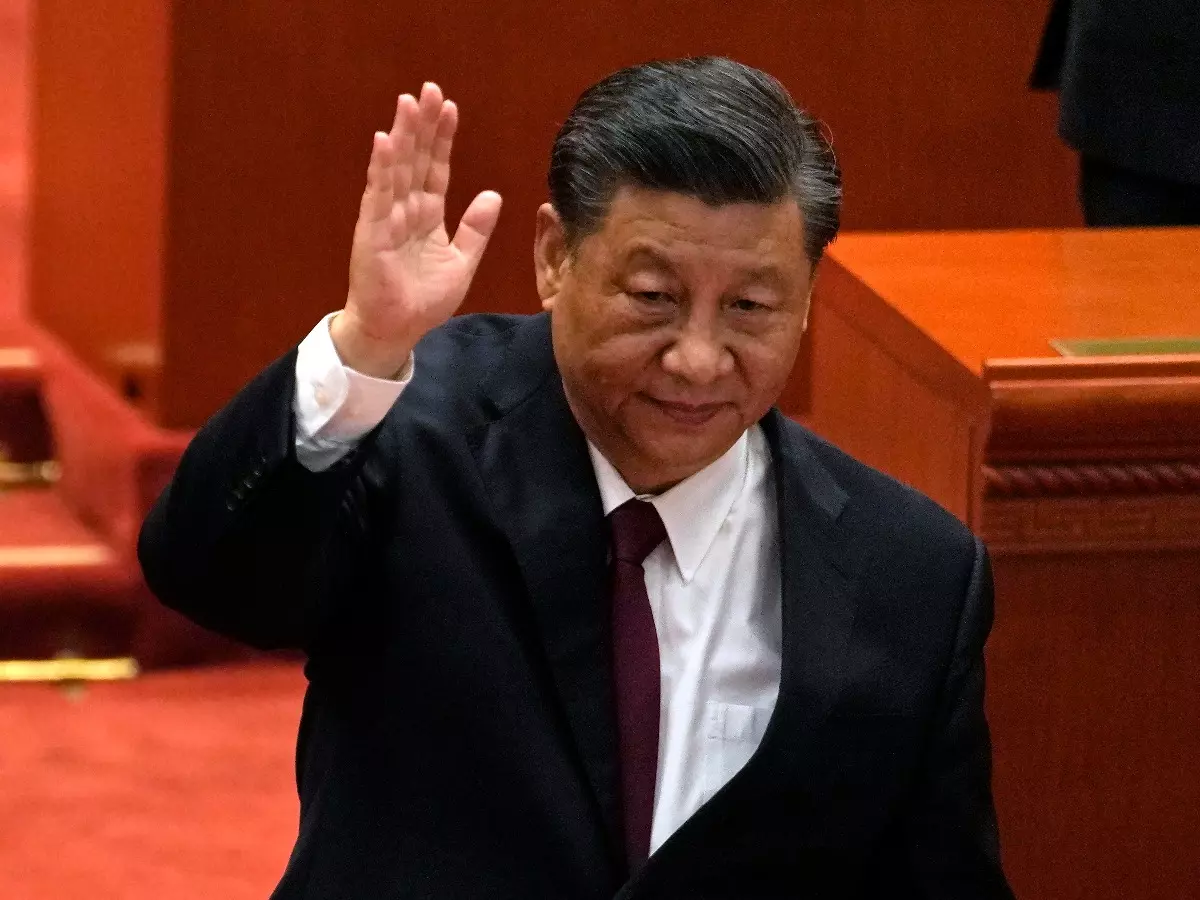Explained: One China Policy And China's Regional Interests
One China Policy is the diplomatic acknowledgement of China's position as the only sovereign government. After the end of the Chinese Civil War in 1949, the Kuomintang's (defeated nationalists) were exiled into Taiwan and the Communist Party took over China. Since then, the People's Republic of China i.e. the Communist regime in the Chinese mainland pushed for the 'One China Principle' whereby the international community recognised only their gov...Read More

One China Policy is the diplomatic acknowledgement of China's position as the only sovereign government.
After the end of the Chinese Civil War in 1949, the Kuomintang's (defeated nationalists) were exiled into Taiwan and the Communist Party took over China. Since then, the People's Republic of China i.e. the Communist regime in the Chinese mainland pushed for the 'One China Principle' whereby the international community recognised only their government as the legal entity over the mainland and the island of Taiwan.
'One China Principle' is China's notion of sovereignty and territorial integrity over Taiwan; whereas 'One China Policy' is the acknowledgement of the international community of one state, one government.
This notion was initially met with dissent until the US realised the need to develop relations with Communist China and proposed the 'One China Policy' by virtue of which they recognised only one China.
 AP
AP
Although the international community including the United Nations doesn't recognise Taiwan as a separate state, Taiwan still maintains cultural, commercial and various unofficial relations with other states; and Taiwan as a separate entity is encouraged to take part in international events where there is no prerequisite of being a 'state'.
What is the background of One China Policy?
Historically, the island of Taiwan and some Northeast regions of China were ceded to Japan during the Sino-Japanese War. The then Chinese government (Kuomintang) was keen on recovering their lost territories.
Following the Communist Revolution in China, the Kuomintang ruling clique were overthrown and they retreated from the Chinese mainland to the island of Taiwan. The 'One China Principle' has been sincerely pursued by the Chinese government of mainland China and they have condemned any efforts to separate Taiwan from the mainland.
Indicating the end of the Sino-Japanese War, the Cairo Declaration of 1943 was issued and Japan was asked to return the Chinese territories. Shortly after that the Potsdam Declaration was signed in 1945 which forced Japan to adhere to the terms of the Cairo Declaration, following Japan's surrender in the second world war.
 Massolit
Massolit
China finally recovered its territory but the replacement of the old regime to a Communist regime after the revolution did not change the aspects of territorial integrity or sovereignty which meant that the newly formed People's Republic of China could exercise sovereignty over Taiwan even though the retreating clique formed a separate government.
This inter-state dispute and confusion still persists and the diplomatic solution to this is the 'One China Policy' that the US a superpower came up with that the international community including the United Nations acknowledges. Hence, in short 'One China Policy' is the diplomatic solution to circumvent the tensions and have relations.
How is the One China Policy central to China's geopolitical interests?
'One China Policy' as an extension that the international community has established of China's 'One China Principle' is central to the recognition of legitimate governance by People's Republic of China. Even though the claim to sovereignty is established, the separation is seen as a major hindrance for the re-emergence of China as a superpower.
The Taiwan Strait leads into the South China Sea that further leads to the Malacca Strait. Cities like Shanghai and Beijing depend on this strait unlike Hong Kong which is a littoral region in the South China Sea. The import of oil and gas from the West Asian region depends on the Malacca Strait and the peace on either side of the Taiwan Strait ensures passage through the Malacca Strait.
 AP
AP
The use of language is crucial in the Sino Geopolitics; 'One China Principle' is China's claim that there is only one China and Taiwan is an inalienable part of it.
China is keen on reunification of Taiwan; historically the Republic of China (who reside in present-day Taiwan) called for 'reunification' and this term is still used instead of 'unification' by the current People's Republic of China to legitimise their claim over Taiwan which one can argue is challenged or endangered to some extent by the Taiwan Relations Act (TRA) by virtue of which the US supplies arms and continues to have cultural ties with Taiwan.
Possible ramification of the Russia-Ukraine crisis
The Russia-Ukraine crisis has set a precedent that some scholars speculate could instigate China to take the same path when dealing with Taiwan. But how would the world react? The US's position is clear based on the 'Six Assurances' conveyed in the third US-China communiqu¨¦.
The US recognises only 'One China' but it also honours the Taiwan Relations Act (TRA). Further, it is clear on its view on the Taiwanese sovereignty and also on the mission to protect the human rights of the people of Taiwan.
Therefore, if China takes the step, it would be detrimental for the country in many ways. For example, if China takes over Taiwan, in lieu of sanctions, a blockade by the US's Pacific fleet would disrupt China's oil and natural gas supply from West Asia and European countries.
References:
Jue, Stanton. ¡°The "One China" Policy: Terms of Art.¡± jstor, American Association of Chinese Studies.
¡°The One-China Principle and the Taiwan Issue.¡± China.org. Accessed 29 April 2022.
¡°What is the 'One China' policy?¡± BBC, 6 October 2021. Accessed 29 April 2022.
¡°Why Did the Communists Win the Chinese Revolution.¡± Constitutional Rights Foundation. Accessed 29 April 2022.